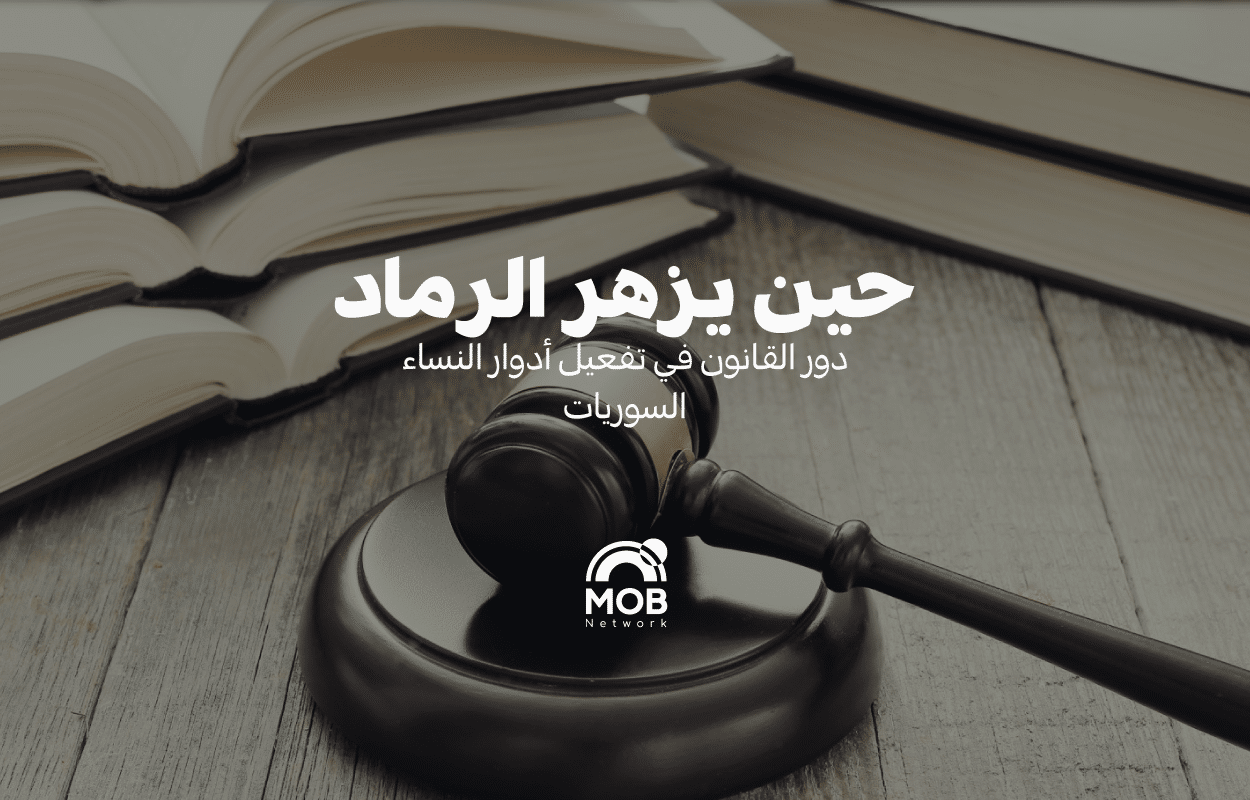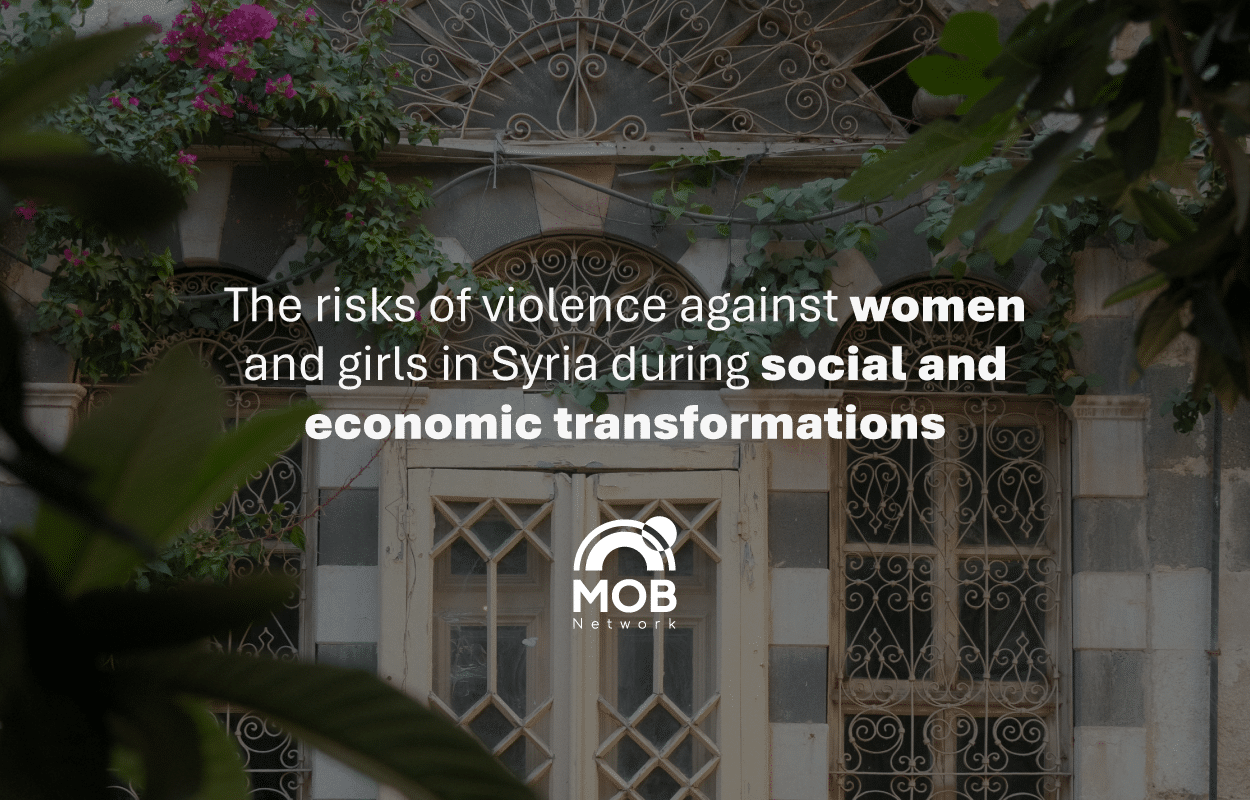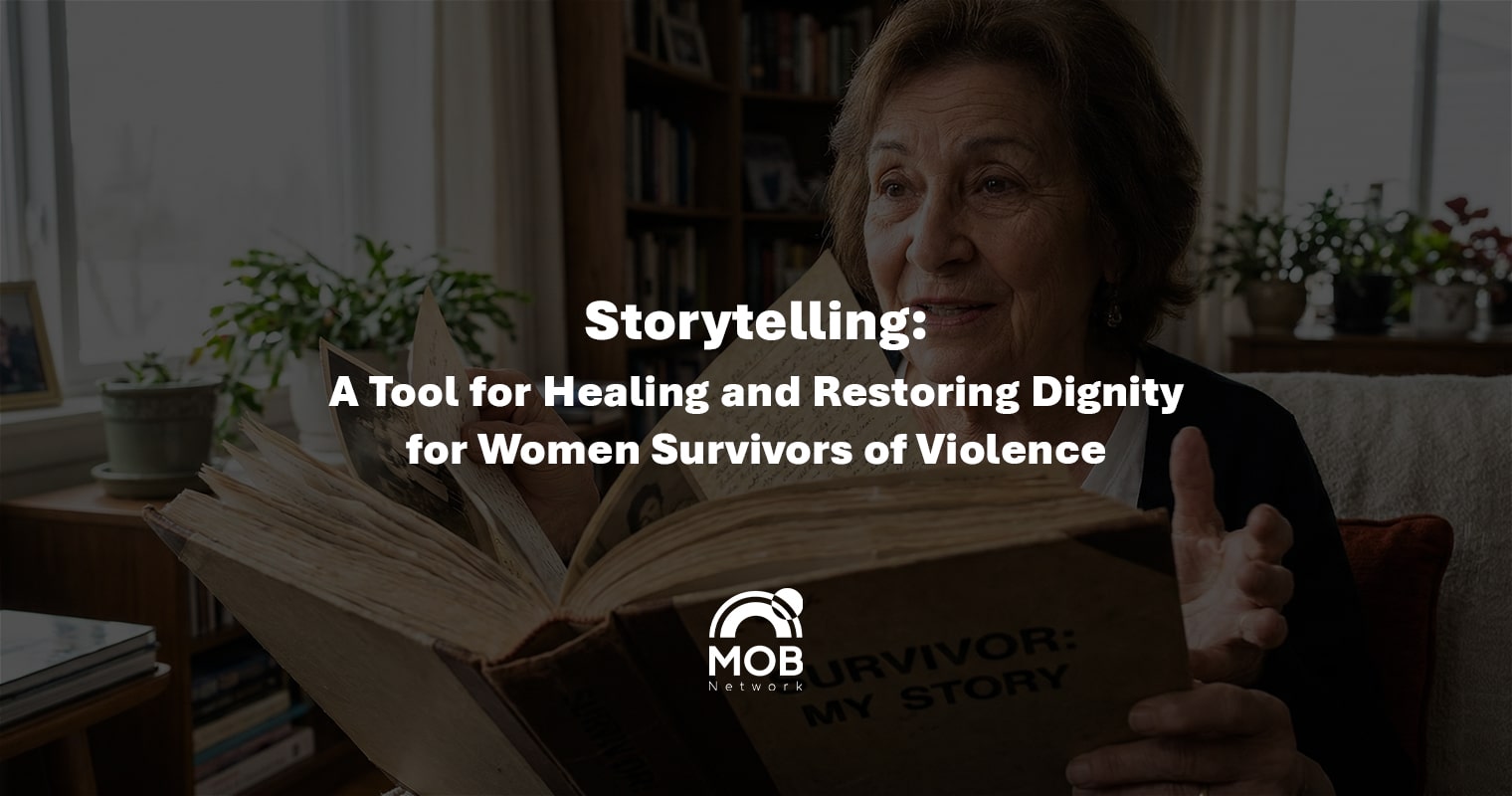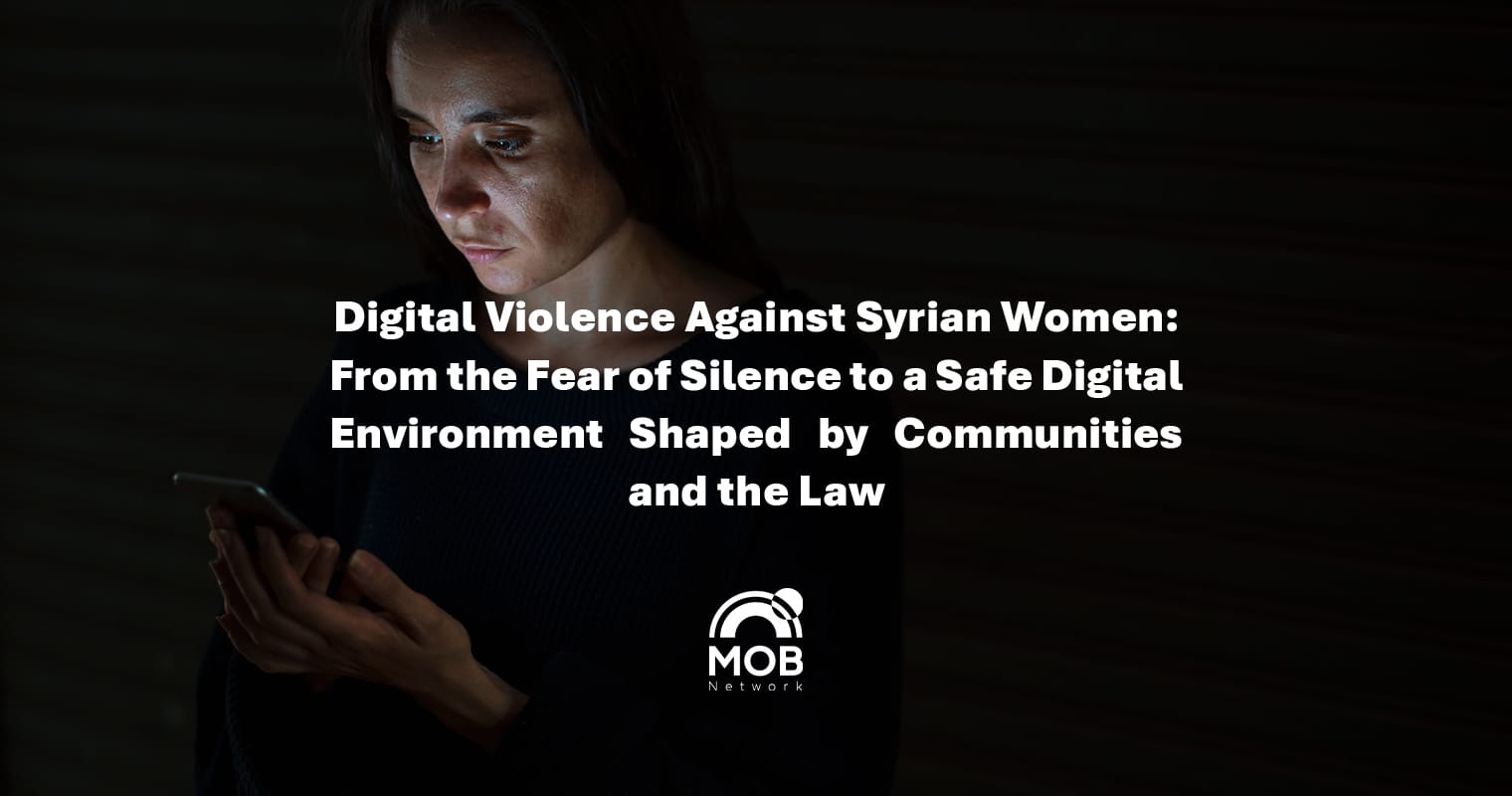In a city where voices were mingled, and where every corner was dug out by furrows of destruction, becoming rubble bearing witness to a past that was once real, a woman sat thinking about the wreckage in her memories and these memories seemed like free-colored paintings, obliterated by darkness, then robbed of their light by the winds. Nothing remained but ashes, and the horizon was empty of mistakes that spawned new pains and disappointments that could plunge them into the abyss of anguish. Everyone is walking cautiously, avoiding crossing doors that might lead to a harsher fate.
Despite all that had happened, a glimmer of hope remained, rising after a long night like a phoenix from its ashes to live in a new future. Here, revival is no longer a faint, hesitant promise, but rather a pulse paving and easing the way to new horizons.
In this article, “When the Ashes Blossom,” we explore how legal texts can serve as an empowering tool for women in Syria after its rebirth, blossoming into a symbol of hope and a key to a new future.
What After the Silence of the War: Women’s Roles
When we examine historical experiences, we observe how women’s roles have changed across time and places, influenced by cultural, religious, and social factors.
Revolutions and conflicts have always been a decisive factor in reshaping societal structures, clearly reflected in the life of women. This change is evident when we compare the legal status of women in countries that have experienced long conflicts.
In South America, for example, Colombia experienced a long-term armed conflict preceded by a revolutionary movement demanding reform. After the war ended, the state began enacting legislation aimed at supporting and legally protecting women. Despite the political and economic challenges facing implementation, numerous efforts have been made to empower women affected by conflict, both socially and economically, and to facilitate their participation in peace and reconstruction processes. Despite all this progress, women still face challenges related to protection from sexual violence and equitable representation in leadership positions.
And we also have Europe, As Germany offers another model after World War II. During this period, women were subjected to a lot of violations, particularly in 1945 and 1946, when they faced sexual assault by victorious forces, particularly Soviet troops. These attacks left deep psychological and social wounds, and there were no clear legal mechanisms to protect women or hold perpetrators accountable.
At the time, communities relied on local and religious initiatives to provide support and over time and with growing awareness of women’s suffering, the German government began providing compensation to affected civilians, laying the foundation for the protection of women’s rights within the German legal framework. This paved the way for contributions to international legislation.
In Arab countries, Tunisia represents a distinguished example. After periods of political tension and internal conflict, it was able to strengthen women’s rights and achieve significant achievements, thus becoming a model for the Arab world in the field of legislation related to women’s rights, whether related to divorce, education, or employment.
Some Arab countries have also drawn inspiration from its success to create clear ways to empower women after periods of revolutions and unrest.
In the Dark: The Legal Framework for Syrian Women’s Rights
Syrian women have witnessed radical challenges and transformations over the past decade. They have been subjected to numerous violations across the board and have faced numerous forms of violence, including sexual, physical, psychological, and economic violence, as well as internal and external displacement, arrest, and torture. Statistics indicate that women constitute more than half of the displaced Syrian population, and many of them have lost family members.
From Resilience to Leadership: The Roles of Syrian Women in the rebirth Stage
A fundamental question arises: What are the potential roles for Syrian women in the next phase?
To answer this question, it is necessary to review previous experiences, especially those whose circumstances are similar to the Syrian situation, analyze the current and future context, and then identify points of intersection to formulate new roles.
After extensive research, we see that women’s roles in the next phase are:
- Peacebuilding and Community Reconciliation:
Most international studies and experiences confirm that involving women in peace negotiations enhances the chances of success and sustainability of those negotiations, given the comprehensive perspective women bring to the table, which includes social justice and ensuring safety for all.
- Documenting Violations and legal Work:
Syrian women have played a pivotal role in documenting violations that occurred during the war years, contributing to the preservation of collective memory and forming a foundation for transitional justice processes. This role should be strengthened by training women in the use of legal tools, enabling them to contribute to holding those responsible for violations accountable and ensuring their non-recurrence.
- Economic field and entrepreneurship:
Women play a key role in leading small businesses, handicrafts, and local industries. They will also be a significant portion of the productive workforce, given the experience they have gained over the past years and their leadership of many economic activities in the absence of paterfamilias and also their displacement.
- Political and social participation:
The coming years will demonstrate a growing desire among women to be a key part of the political landscape and public policy formulation, ensuring real and effective representation of women.
- Reforming Education and Guiding the Next Generations:
Women have a crucial role in developing educational curricula to promote values of peace, justice, and citizenship, as well as encouraging generations to embrace a culture of dialogue and respect for others.
- Psychological Support and Community Recovery:
Women have an innate capacity to provide psychological support and containment, especially those who have experienced the bitterness of displacement and the loss of loved ones. They can serve as a moral support for communities recovering from the effects of war.
- Legal and legislative role
Women will be a key component in building a comprehensive democratic society. They will be part of legal reform processes to ensure equality and protect them from all forms of violence and discrimination.
Future Beacon for all: Aspirations for Legal Texts and Procedures Supporting Syrian Women
The question today is: How will women continue their journey?
And what legal texts are capable of achieving this?
There is no doubt that legal texts are the backbone of social development, and it is essential to work on texts that illustrate the future roles of Syrian women and place them within a clear framework. Many of these texts can be worked on, as like:
- A new constitution:
With a new constitution that creates the cornerstone of the political transition process, guaranteeing fundamental rights for all citizens and strengthening the separation of powers (legislative, executive, and judicial).
It also protects women’s rights and ensures their active participation in political and social life. Legal texts must be clear on how to protect women’s rights and safeguard them from all forms of discrimination.
- Political Parties Law:
Ensures true political pluralism and ensuring that political parties are more diverse and representative of all groups, including women.
With women’s representation in political parties, women will be able to effectively influence decisions made at the state level.
- Societies and organizations Law:
civil society organizations are among the most important forces in civil society, contributing to the building of the modern state. The law must allow women’s associations to operate freely and without restrictions, while strengthening the role of women in civil, charitable, and cultural work. Legislation must also ensure that there is no authority or bureaucratic interference in the work of associations.
This contributes to building a supportive environment for women’s initiatives and developing women’s capacities to confront the challenges they may face, ensuring effective measures to protect peacebuilders.
- Transitional Justice Law:
There is no doubt that a transitional justice law is the foundation for comprehensive national reconciliation after conflicts, and it must include mechanisms to address the violations women suffered during the war. It is essential that the law include clear standards for prosecuting perpetrators of crimes against women and providing reparations to victims, in addition to strengthening the role of women in the transitional process.
- Elections Law:
To ensure women’s participation in decision-making at all levels, the electoral law must include provisions guaranteeing adequate female representation in legislative bodies. This could include allocating quotas for seats or enforcing laws ensuring that electoral lists include equal representation of women and men.
Tunisia’s experience in ensuring gender parity on electoral lists could serve as a model.
- Local Administration Law:
The Local Administration Law should promote decentralization, granting women in different regions the opportunity to participate in local decision-making, thus contributing to building a Syrian state based on fair and equal foundations.
Women must play an active role in local councils to ensure their specific needs are met within their communities.
This should also include a set of executive measures, such as allocating tax incentives and soft loans to women-led projects to encourage their active participation in the economy.
Efforts must also be made to ensure girls’ education and develop their capacities and skills, and to establish strict procedures and provisions to prevent gender-based discrimination in all areas.
A Roadmap for Tomorrow: Steps to Action to Achieve Legal Texts that Support Women’s Roles
Reforming Syria’s legal system after these years requires a comprehensive plan that takes into account political, social, and economic challenges. This plan begins with a comprehensive review of all legislation affecting women’s rights, basing it on international agreements such as the Convention on the Elimination of All Forms of Discrimination against Women (CEDAW), to ensure that the texts comply with global obligations.
This will be followed by a phased process of drafting new legal texts that are appropriate to the country’s circumstances and women’s aspirations. These texts will be drafted in consultation with civil society and women’s organizations to ensure true representation of women’s voices and their actual needs.
Also, Efforts must be made to establish an independent body for women’s rights, which will act as a body that guarantees the implementation of measures and legislation related to women, and monitors the proper implementation, with the possibility of amending them whenever necessary.
In conclusion, we will witness the birth of a new image of the Syrian woman, forging a new chapter in her unwavering will. Syrian women will be a key pillar in the process of change, carrying the torch of renewal and creativity, and shaping the details of a more just, prosperous, and developed future.
These women will not only bear witness to a new era, but will also be at the heart of its events, inspiring and determined to make life blossom from the ashes.
With every flower that will sprout from these ashes is a story of resilience… a story of unwavering will… a story of a bright future that women will shape.
Written by: Rula Bashimam
Translated by: Aouni Alsammani
With every flower that will grow from these ashes, a story of resilience... a story of unwavering will... a story of a bright future that women will create.
Rula Bashimam Tweet




